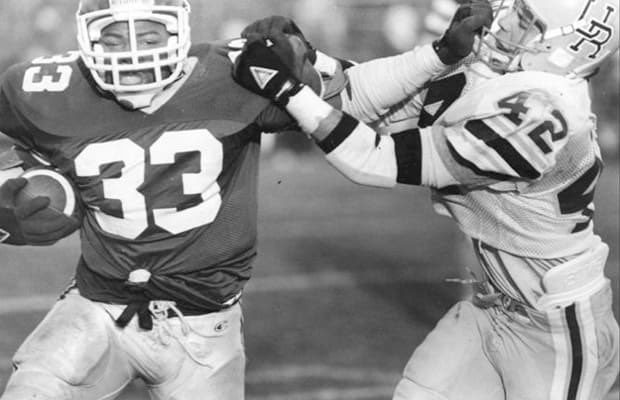In this edition of Homicide Brides, we will discuss the less-known case of Terry Underwood, a former CFL and college football player charged with murdering his high school sweetheart Theresa.
Backstory
There is minimal backstory on Terry and even less on Theresa. What do we know about Mrs. Underwood? Theresa Rodriguez grew up in Matawan, New Jersey, attending Matawan Regional High School. She had a loving family with involved parents. At the time of Theresa’s death, she was living in Cliffwood, NJ and was the mother of two: Terry (5) and Alexandra (4), with her husband; she was also 6 months pregnant with her third child. Mrs. Underwood worked as a dental hygienist and taught Sunday School at the church the family attended for years – Calvary Baptist Church.
Terry Underwood also grew up in Matawan, attending high school with Theresa. Terry won many football trophies and made many records for his high school, all of which have been removed. The three-time All-American football player at Wagner College went on to training camp with the Jets but was cut shortly after that. He played two games for the Toronto Argonauts and had a short stint in Europe’s WFL. When Underwood returned to the States, he worked for non-profits that no longer exist that served children.
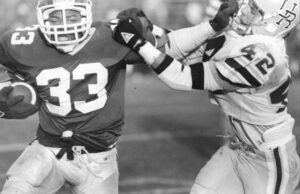
In a song we’ve heard sung in every Homicide Brides article to date, there was concern over money. Mr. Underwood had been bringing in the big bucks in Europe, but since returning to America he made very little money working for non-profits. As a result, the couple was living in a 2-bedroom apartment they had outgrown, with one more child on the way. It weighed heavily on Terry.
That night
Some believe a dispute occurred between the couple on August 24th, 1988, that may have caused Terry to “snap.” Theresa had a knife inserted into her body 88 times, suggesting a crime of passion, and had blunt force trauma and cuts. The fetus was not directly injured but was not viable after Theresa died. Neither child in the home was harmed in the attack. Terry failed a polygraph test and confessed the crime to the police at 11 PM on the 25th.
Terry’s plea for innocence
Terry Underwood claims he is innocent and that his confession was coerced after 19 hours of interrogation with seven police officers and no lawyer or voice recording. 26 hours without food or drink, and 37 hours without sleep. Terry also points out that polygraphy tests are not always accurate (true!), and he had a solid alibi.
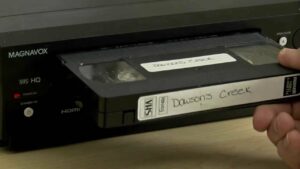
The timeline of the crime and the given alibi is a bit perplexing. The defense had a witness that testified that Terry was with him from roughly 10:15 PM until 1:20 AM, calling the police at 1:39 AM. In the 1980s, games could only be recorded with a VCR tape, and you couldn’t avoid commercials. Games also were roughly 3.5 hours like today and tended to go longer more often. It works timewise. There is no argument that Terry Underwood left home – his motorcycle was warm, and he spoke to a toll collector, something he was excited to let the 911 operator know.
Theresa’s time of death is unclear; it’s already a broad estimate between 9:30 PM and 1:30 AM. Is 9:30 (or a little before) early enough for Terry to do the murder, clean himself up, and get rid of the murder weapon before hanging with his buddy at 10:15? That is the prosecution’s theory. People are also relatively bad at estimating time – who’s to say Terry went to his friend’s house at 10:20 and not 10:30 or 10:40? Assuming Underwood had gone to see his friend. The latest time of death was estimated at 1:30; what if he left early and murdered his wife?
Police thought it was odd because Underwood was only wearing underwear and socks when they arrived. He had only been home for a few minutes with a dead wife in his bedroom. His wife that he wouldn’t do CPR on because there was blood spatter on the walls, and he was busy looking for a gunshot, according to the 911 call.

In the prosecutor’s closing statement, they also pointed out that there was no sign of forced entry, and Terry did not search his home for an intruder when he found his wife dead. Theoretically, if he was worried about an intruder, he would have looked in case he or his children could be in danger. It just didn’t appear that someone else committed this crime.
To Bolster Terry’s innocence claim, no forensic evidence indicating that Underwood was guilty. The murder weapon was never found, and Terry had no blood soaked clothing or defensive wounds from Theresa protecting herself. The defense alleges that Underwood was illegally arrested after he was handcuffed in the police car after calling 911. Also, a fingerprint was found at the crime scene that was not matched to any guests, apartment inhabitants, or Terry’s prior sidepiece. The court case was problematic as well. The defense pointed out one juror was the uncle of the county’s chief prosecutor. Underwood was sentenced to 60 years in prison after that trial in 1998.
Underwood’s defense was not convincing enough to win the appeal. Cops claimed they offered Terry legal representation and food and water (why would we ever second-guess law enforcement?) so he was not coerced in the law’s eyes. Also, the lack of forensic evidence can be as telling as the presence of it – not much can be drawn from this alone (did he take a shower? did he hide his bloody clothes?). Allegedly Underwood also tried to attack a cop, so he was handcuffed. This could have contributed to the potentially illegal arrest. Jurisdictions are different – jurors can’t always be removed if they answer that they are not biased (the juror in question said they could be impartial).
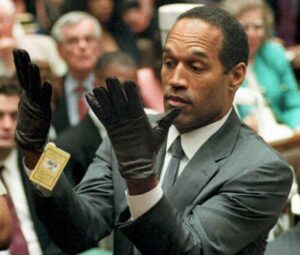
Terry Underwood also believes that backlash occurred because his case was tried a couple of years after OJ Simpson was acquitted, and the legal system was salty. Rae Carruth’s mom claimed the same thing – stop trying so hard, Carruth, that argument isn’t for you. It would be hard to prove this is true, so you decide if this argument is compelling. Perhaps the justice system was biased and didn’t want to see football players kill their significant others without repercussions, and felt Underwood would make a good example.
Theresa’s family is unimpressed with the arguments, labeling them excuses. They point out that he did confess and he failed the polygraph tests. That’s not impressive reasoning from 2023 logic. Polygraph tests are not admissible in court because of their lack of reliability – the family gets a pass on this one, though the tests were still accepted as valid up to 1991. There was also a lack of understanding about false and coerced confessions in the 1980s. Thankfully, in 2023, we know that people can confess to things they didn’t do, especially when facing emotional duress from coercion. No lawyer or voice recording is super shady, although the laws were/are lacking in this area.
Theresa’s fingernail clippings were collected in the 1980s and tested in the 2000s for DNA – there was no third-party contributor found, although the DNA under one nail was inconclusive. Underwood supporters wanted to get the Innocence Project involved in the 2000s, although it seemed they never did. There is still a question mark regarding the DNA and fingerprint contributor. A lack of DNA underneath Theresa’s fingernails showed she did not fight back against her offender – perhaps she didn’t feel threatened by her attacker until it was too late, or the first few injuries rendered her incapable.
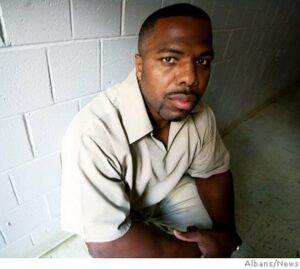
Friends and family
No friends or family ever saw this kind of behavior coming from Underwood. Mike Jones, a fellow church partitioner and childhood friend and teammate in high school, said he couldn’t believe it. Coaches from college can’t remember a hint of a temper or a dark side in Terry. A college teammate said he saw Underwood the June prior to the murder and said he acted the same as always – happy-go-lucky and never indicating any problems.
Mike Jones said he was aware that the family was experiencing financial problems, and indicated Terry Underwood was bitter about his career ending the way it did. His college teammate said he didn’t think Terry was but then also indicated he didn’t know much about Underwood’s personal life. The pastor of Calvary Baptist Church said everyone was shocked – he described Theresa as a wonderful person, a devoted mother, and a sweet spirit.
Jim Wright, his alibi on the night of the crime, was a friend since kindergarten. Jim didn’t blame the cops for trying to solve the murder, but was sure they had the wrong guy – the crime timeline was too tight for Underwood to pull off everything the offense claimed. Allegedly, Terry didn’t act any different than usual; how could he be guilty and acting normally? Have you ever heard of psychopathy, Jim?

How do the families feel? Terry Underwood’s entire family has his back – his sister Stacy promises us that if they felt he was guilty, the family would love him from afar. They would not fight for his freedom, something his sister Vincenzia said they would continue to do. Terry’s mother believed in him enough to spend her entire retirement fund to pay for her son’s third-rate lawyer (according to them). Shirley is absolutely shattered.
Theresa’s father was less charitable. He said publicly in court that Underwood was “a coward and a cold-blooded killer (who) is so self-centered that he continues to lie to his family and continues to cause them pain.” Ooph.
Want to catch up on Homicide Brides? Here’s the article on Jim Tyrer, the article on Steve McNair, the article on Jovan Belcher, the article on Rae Carruth, and the article on Fred Lane.

